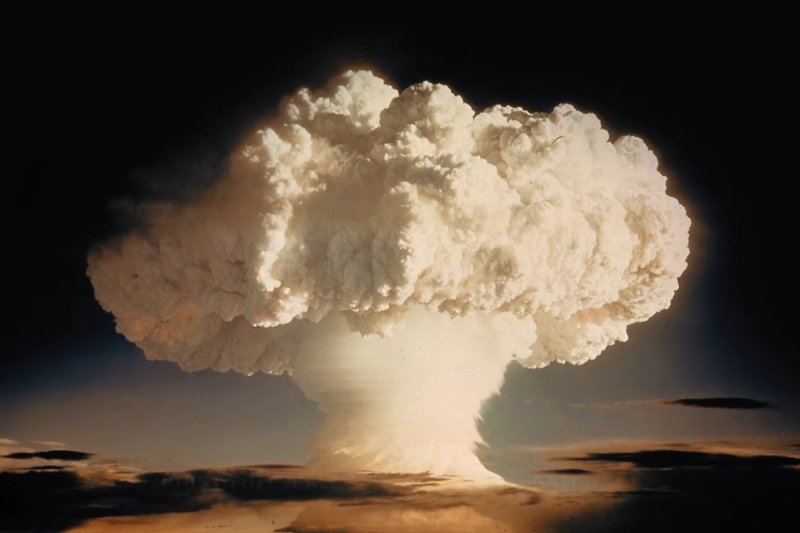WASHINGTON -- The hydrogen super-bomb, capable of destroying whole cities in a flash with blast and fire, has now joined America's arsenal of atomic weapons.
That, informed sources said Monday, is the clear meaning of a brief official announcement issued by the Atomic Energy commission in the wake of a flood of eyewitness accounts from Eniwetok describing the world's first H-bomb explosion.
These sources also said that development of the super-bomb was a brilliant scientific and technical achievement which gives the West a tremendous new weapon not yet possessed by Russia, for enforcement of peace. They predicted that the first test model of the H-bomb will be followed shortly by even more violent versions.
But what the role of the super-bomb will play in the U.S. scheme of defense has yet to be determined. That is a matter of high policy calling for difficult decisions. The man who will have to make them is President-elect Eisenhower.
He undoubtedly will get at least a preliminary briefing on the nature of the scientific, economical, and military problems posed by the H-bomb when he confers with President Truman and administration leaders at the White House on Tuesday.
Many individual members of the task force which conducted this fall's historic tests at the Eniwetok proving ground in the Pacific wrote vivid reports in letters home of the H-bomb's incomparable blast and flame effects. Many gave Nov. 1 as H-day. Some hinted at more than one hydrogen explosion.
But the Atomic Energy Commission in Sunday's meager announcement withheld all details. AEC Chairman Gordon Dean said "any amplification might give aid to potential enemies," and that, therefore, "we will make no further announcements."
Dean also said the commission "is concerned" by the eyewitness letters. He said investigations are under way which may result in disciplinary action or prosecution or prosecution for violation of law or security regulations. He did not, however, deny what the letter writers wrote.
The commission didn't even use the word H-bomb. It said only that "the test program included experiments contributing to thermonuclear weapons research." It did say that the task force had performed "a remarkable feat," and that the scientists in charge were satisfied with the results.















